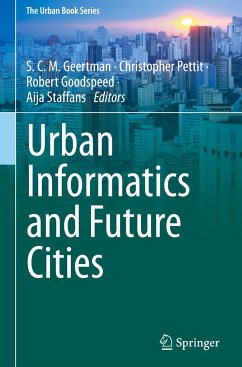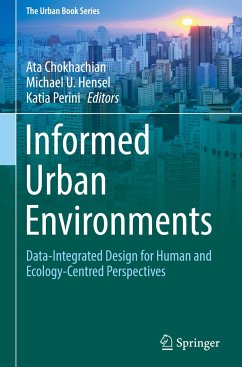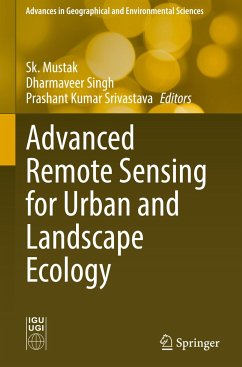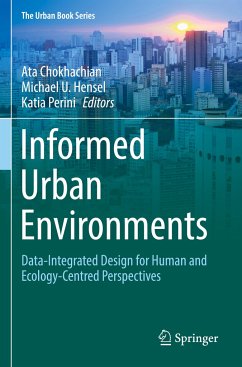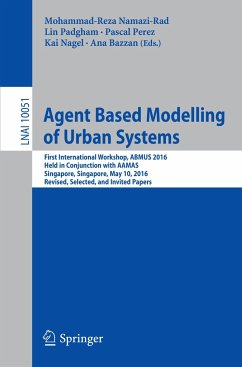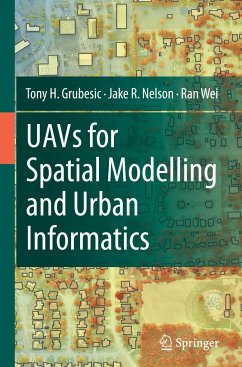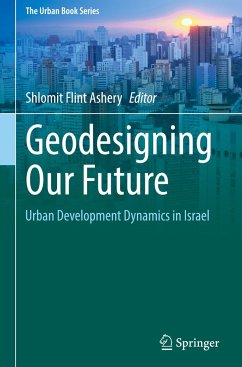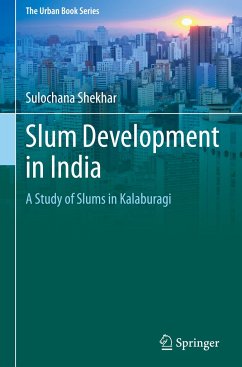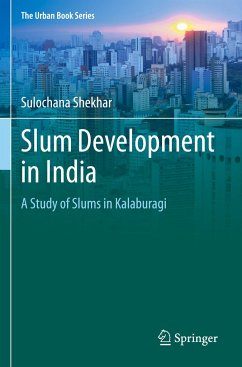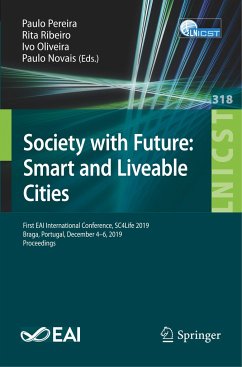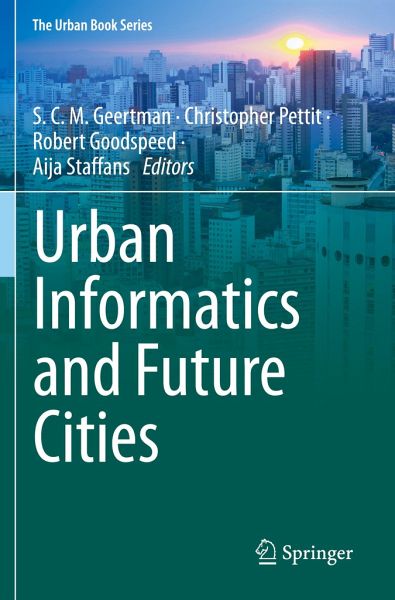
Broschiertes Buch
Urban Informatics and Future Cities
Versandkostenfrei!
Versandfertig in 1-2 Wochen

PAYBACK Punkte
84 °P sammeln!




This book forms a selection of chapters submitted for the CUPUM (Computational Urban Planning and Urban Management) conference, held in the second week of June 2021 at Aalto University in Helsinki, Finland. Chapters were selected from a double-blind review process by the conference's scientific committee. The chapters in the book cover developments and applications with big data and urban analytics, collaborative urban planning, applications of geodesign and innovations, and planning support science.
Prof. S. C. M. Geertman is full Professor in Planning Support Science and Chair of Spatial Planning at Utrecht University in the Netherlands. He has published widely in (inter-)national journals and has edited a range of scientific books in the field of Planning Support Science. He is/was (co-)editor of several international peer-reviewed journals (e.g., ASAP - Applied Spatial Analysis and Policy) and serves on the editorial boards of diverse scientific journals (e.g. CEUS - Computers, Environment, and Urban Systems). He has been chair/member of several international conference organizations (EGIS; JECC; AGILE-2011; DDSS; CUPUM-2013) and was for the past 10 years Chair of the International Board of Directors of CUPUM (Computational Urban Planning and Urban Management). He has participated in numerous interdisciplinary research projects, ranging from 'Climate change and sustainable land use' to 'Spatial economic deconcentration'. For 10 years he was the scientific director of an academic spin-off of Utrecht University (Nexpri) and was one of the founding fathers and first program director of the inter-university Master program GIMA (Geographical Information Management and Applications). His research interest can be categorized under the heading 'Planning Support Science for Sustainable Urban Futures'. Chris Pettit is the Director of the City Futures Research Centre, inaugural professor of Urban Science, and Plus Alliance Fellow at UNSW Sydney. He currently Chair of the Board of Directors for CUPUM (Computational Urban Planning and Urban Management). He is a member of the Planning Institute of Australia's National Plantech Working Group, the advisory board for the Centre for Data Leadership, the Committee for Sydney's Smart Cities Taskforce and the NSW Government Expert Advisory Group for Planning Evidence and Insights. Prof. Pettit established the City Analytics Lab (CAL), a dedicated space designed to support collaborative city planning and user-centred design. He Chief investigator on a number of ARC, CRC and Industry projects including: The Rapid Analytics Interactive Scenario Explorer (RAISE) Toolkit which has been the recepient of the NSW Planning Institute of Australia's Award for Research Excellence and the Committee for Sydney's award for Smart Cities - Industry partnership. Prof. Pettit's expertise is in the convergence of the fields of city planning and digital technologies including Geographical Information Systems (GIS) and Planning Support Systems (PSS). He has given numerous keynote addresses at conferences around the world, is on the editorial board for a number of journals and has published over 200 academic papers. For the last 25 years, he has been undertaking research and development in the use of digital tools to support evidenced-based spatial planning. Robert Goodspeed is an assistant professor of urban and regional planning at the University of Michigan's Taubman College of Architecture and Urban Planning. He teaches and conducts research in the areas of collaborative planning, planning support systems, urban informatics, and scenario planning theory and methods, and is the author of the book Scenario Planning for Cities and Regions: Managing and Envisioning Uncertain Futures. He is a member of the American Institute of Certified Planners, and serves on the boards of the conference Computational Urban Planning and Urban Management (CUPUM) and the Consortium for Scenario Planning, an initiative of the Lincoln Institute of Land Policy. Dr. Aija Staffans is an architect and works as Senior Research Fellow at Aalto University, Finland. Staffans is a pioneer in developing participative methods, digitally supported platforms and interactive environments for urban development and collaborative land use proces¬ses. She has initiated and leads the Aalto Built Environment Lab ABE for investigating innovative planning and design methodology. She also leads the multi-disciplinary research network of human-centered living environments, Living+, at Aalto since 2018. She holds several positions of trust and expertise in academic, professional and NGO organizations, and has impacted the development of urban planning in practice at various levels from local guidelines to national legislation in Finland.
Produktdetails
- The Urban Book Series
- Verlag: Springer / Springer International Publishing / Springer, Berlin
- Artikelnr. des Verlages: 978-3-030-76061-8
- Seitenzahl: 644
- Erscheinungstermin: 17. Juli 2022
- Englisch
- Abmessung: 235mm x 155mm x 26mm
- Gewicht: 1077g
- ISBN-13: 9783030760618
- ISBN-10: 3030760618
- Artikelnr.: 64198497
Herstellerkennzeichnung
Springer-Verlag GmbH
Tiergartenstr. 17
69121 Heidelberg
ProductSafety@springernature.com
Für dieses Produkt wurde noch keine Bewertung abgegeben. Wir würden uns sehr freuen, wenn du die erste Bewertung schreibst!
Eine Bewertung schreiben
Eine Bewertung schreiben
Andere Kunden interessierten sich für


